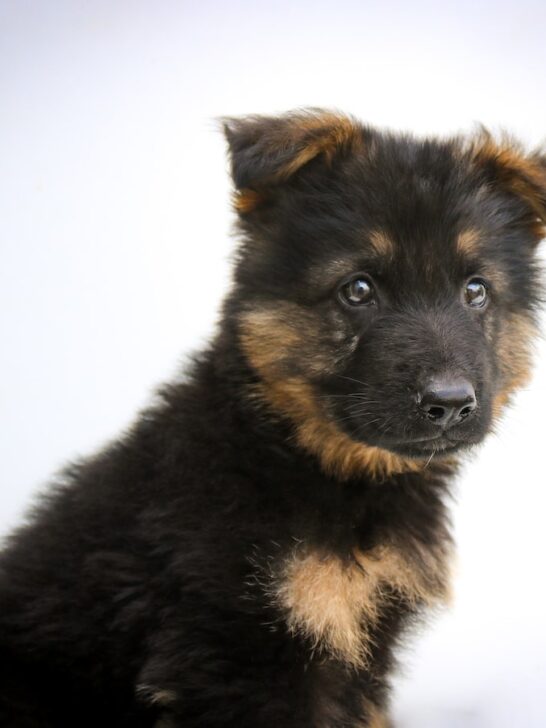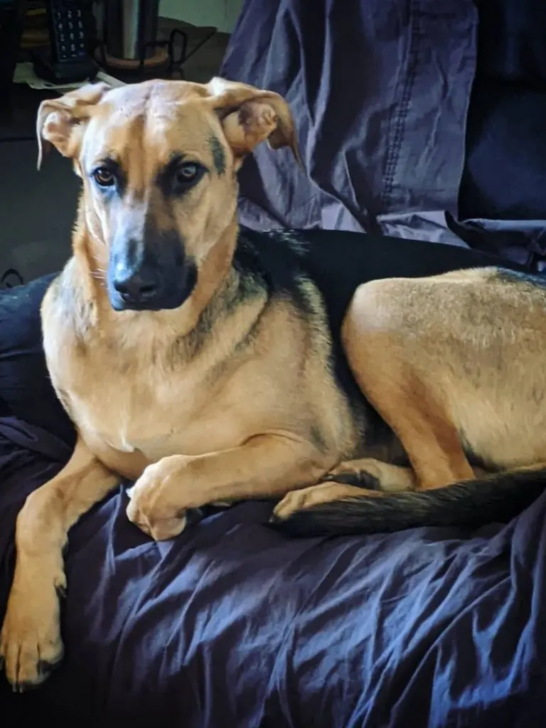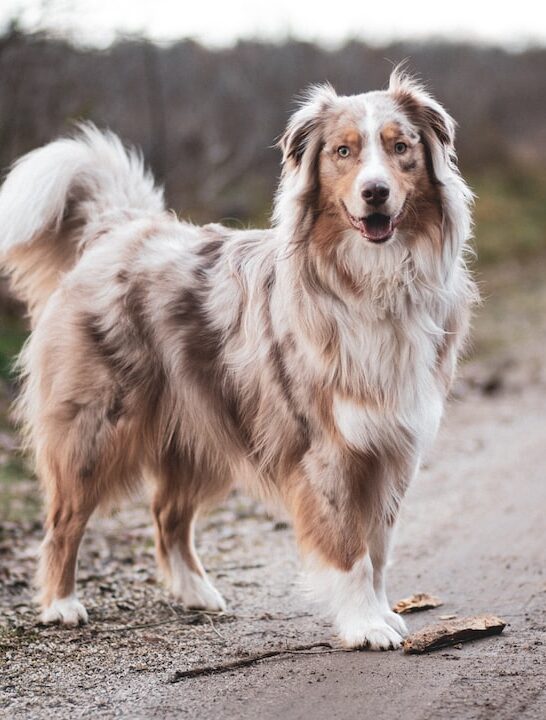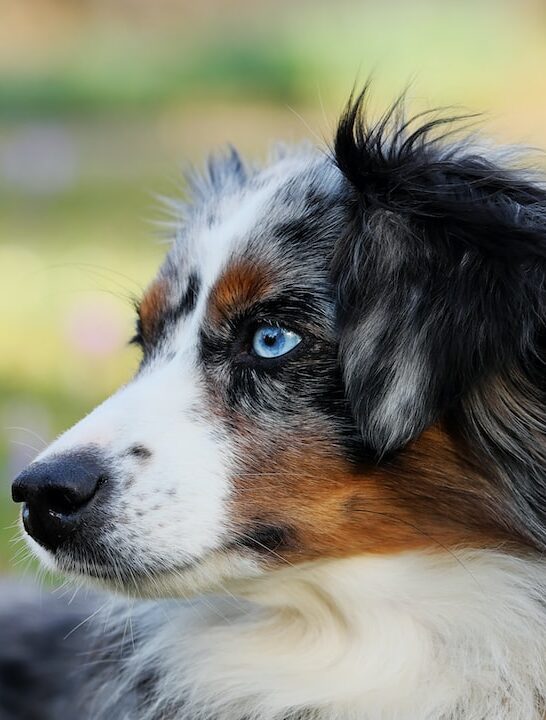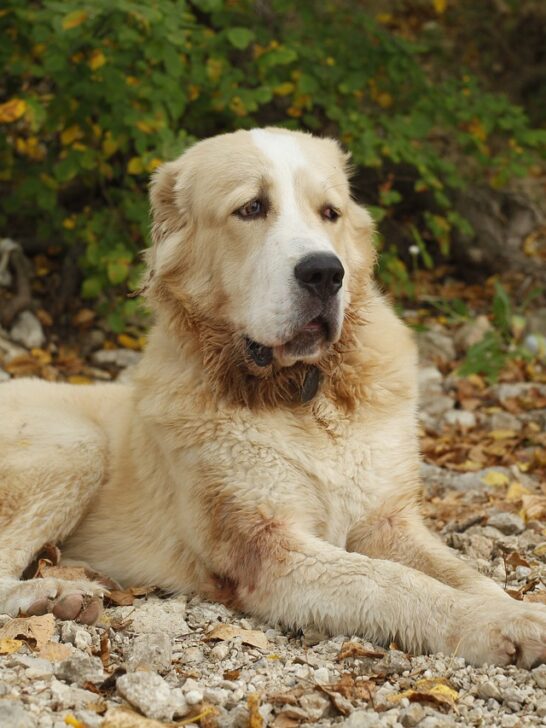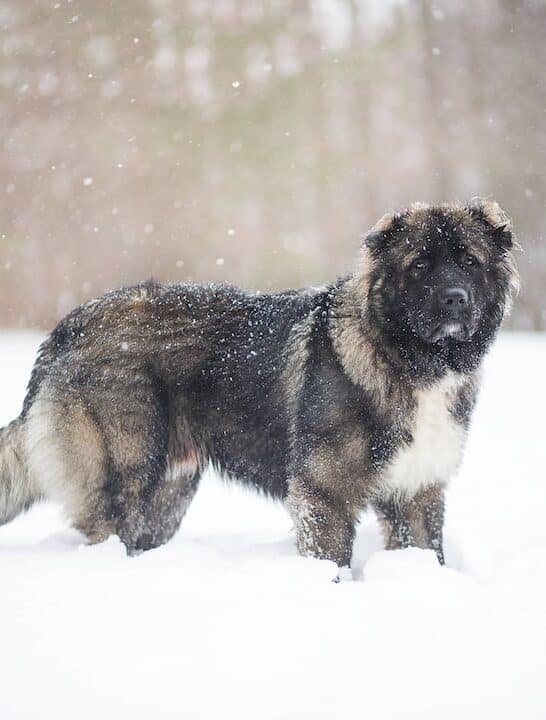Can a German Shepherd Be a Hunting Dog: Find Out If Hunting Is a Good Fit for a GSD
German Shepherds are naturally athletic, intelligent, and people-centric dog breeds. These dogs are a top pick for all kinds of fieldwork, from military and police to guarding and protection.
One common question new GSD owners have is whether a German Shepherd can be a hunting dog. The answer to this question might surprise you!
In this article, we take a close look at the best jobs for the German Shepherd dog and find out where hunting ranks amongst them.
Can a German Shepherd Be a Hunting Dog? The simple answer to the question of whether a German Shepherd can be a hunting dog is “it depends on the individual dog.”
Some German Shepherd dogs show an aptitude for hunting as early as puppyhood while others never really seem to grasp the concept.

Watch a German Shepherd Learning to Hunt
In this video, you can watch a GSD owner training her German Shepherd to hunt. She is using a tennis ball as a lure to help her dog learn skills in tracking and flushing game.
Why Wouldn’t All German Shepherds Make Great Hunting Dogs?
As Wildhaus Kennels German Shepherd dog breeder explains, there are several different breed lines of German Shepherd today, including show (appearance-based) and working (trait-based) lines.
Show or pet breed line German Shepherds
The most common German Shepherd dog most people think of is the show type. These dogs are bred to look a certain way, from their weight and height to their coat color and stance.
Some show type German Shepherd dog breed lines are American and some are German in origin. This means that the parent dogs come from either American or German breeders.
Only certain select dogs from each litter will be designated as “show quality.”
This means their overall look or appearance has a very close resemblance to the ideal show dog breed standard as maintained by the American Kennel Club (AKC).
The rest of the puppies from each litter will be designated as “pet quality” German Shepherds and these are the dogs most people own as companion canines today.
This is not to say that pets or show German Shepherds cannot also be great working dogs. But this is not what these GSD lines are primarily bred for.
Working breed line German Shepherds
The original line of German Shepherds, developed by a military captain named Captain Max von Stephanitz, was a working line.
These dogs were bred for particular personality and temperament traits rather than a uniform appearance standard.
Working German Shepherds are bred for stamina, speed, athleticism, high pain tolerance, intense focus, intelligence, loyalty, obedience, and drive.
Because these dogs are bred for traits, their appearance can vary even from one puppy to the next within a single litter.
However, if your primary reason for choosing a German Shepherd is because you have a job in mind for your dog to do, such as hunting, a working breed dog is going to give you greater assurance your dog will have the traits the job requires.

What Skills Does a German Shepherd Need to Be a Hunting Dog?
As this forum thread from Trapshooters explains, there are certain physical as well as temperament or personality traits that a dog needs to have to give them an advantage as a hunting dog.
Mouth
In the forum thread, you see hunters mentioning that German Shepherds have a “soft mouth.” This means that the dog is more likely to gently carry the quarry (prey) to you rather than try to bite it or eat it.
This is advantageous especially if you are hunting small prey like birds or foxes. It is less necessary if your prey is primarily large mammals like deer or boar.
Nose
Another trait you can notice the hunters mentioning is a dog using its nose to track and identify prey targets.
The hunters mention that in most cases, the German Shepherd doesn’t seem to instinctively use their sense of smell to identify prey.
Rather, the GSD tends to use sight (movement) or hearing.
Although the GSD is often used for bomb detection, drug detection, forensic (cadaver) work, and other types of nose work, in hunting this dog tends to use other senses more frequently.
Obedience
The German Shepherd scores very high in the type of canine intelligence that favors quick learning and a high level of obedience, according to a canine intelligence study published by Science Daily.
However, the German Shepherd is also a dog breed that is descended from herding and livestock guarding dogs and these dogs tend to have a “mind of their own,” as the Trapshooters hunters point out.
Here, the only way to really know if your particular German Shepherd has what it takes to work in tandem with you in hunting is to go through the training process and see how your dog does.
Breed line
As we mentioned in the earlier section here, the hunters also advise choosing your puppy’s breed line carefully.
A working dog breed line descended from the original German Shepherds bred by Captain Max von Stephanitz (or German Shepherds bred according to his breed standard) are much more likely to deliver the traits the ideal hunting dog would have.
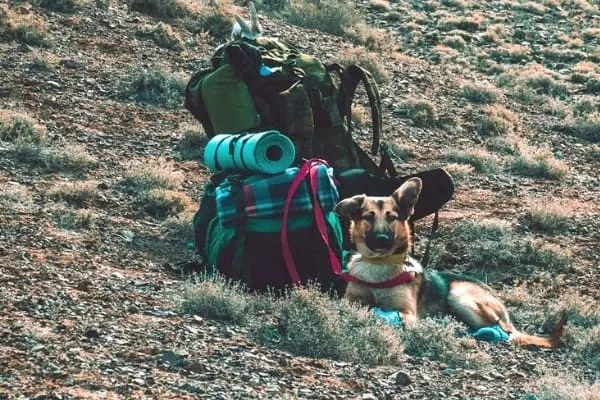
Understanding the Different Types of Gun Dogs
Many dog owners and dog lovers do not realize that there are a variety of sub-categories within the canine group known as the “gun dogs.”
Gun dogs are typically understood to mean hunting dog breeds. However, gun dogs can also be police K-9s, military dogs, or private guarding and protection dogs.
The key is to understand how the dog interacts with their human partner. In hunting, the main types of gun dogs are pointers, retrievers, and hunters, as the Gundog Club UK explains.
The key to understanding the three main categories of gun dogs, or hunting dogs, is to understand that each breed has a primary strength but can also handle the other jobs if necessary.
1. Pointers
If you have ever watched a dog freeze in place with their attention firmly on a fixed point, you were probably watching a pointer dog in action
Pointers may use their tail, their paw, their muzzle, and their overall stance to indicate to their human hunting partner that they have sighted a quarry (prey animal).
Pointer dogs are bred to work both closely with a human hunting partner and independently since they often also work as hunters and retrievers.
2. Retrievers
The ever-popular Labrador Retriever is the most well-known example of the retriever category of gun dogs. While most people today think of the Golden Retriever and lovable Labrador as pet dogs, they are expert retrievers.
These dogs can do just about anything to retrieve downed prey animals, from working their way through dense undergrowth to swimming out to get the prey if need be.
Retrievers are bred to work independently of their human hunting partner as well as alongside them. A retriever breed needs to be able to stay on task and do their job apart from close human supervision.
3. Hunters (flushers)
Hunting dogs are sometimes called flushing dogs. These dogs use their nose to “flush out” the prey animal from wherever it is hiding.
Then their human hunting partner can bring down the prey, at which time the hunter turns the retriever and will bring the prey back to their person.
Hunters are sometimes trained to work as pointers and retrievers as well.
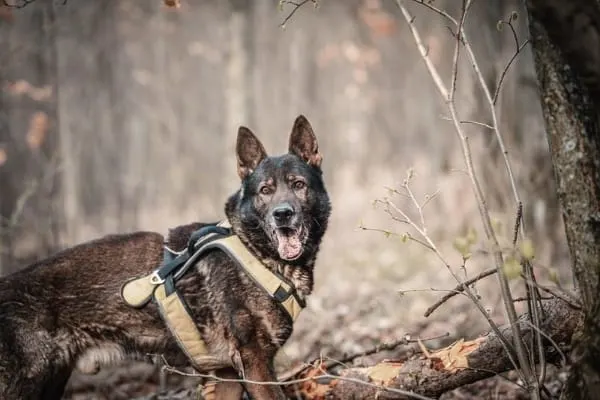
What Category Does the German Shepherd Dog Fall Into?
After reading about the three main types of gun dogs in the section earlier here, you may be wondering which category the German Shepherd dog falls into.
As the American Kennel Club (AKC) explains, the German Shepherd dog breed is not a gundog breed at all.
Rather, the GSD is classified as a herding dog breed. This is accurate, as the first dogs that Captain Max von Stephanitz bred to produce the German Shepherd were herding dogs as well.
In fact, Captain von Stephanitz had the goal of producing the perfect working dog, but he chose herding dog breeds to base his new breed off of.
This is why many hunters say that the German Shepherd dog is not the ideal choice for a true hunting dog. Their instinct as a dog breed is to guard, herd, and protect, not to hunt, track, or point.
However, there is a hunting element in the herding dog skillset.
As part of the herding dog’s job description, these dogs are expected to drive away or, if necessary, kill predator animals that are threatening their livestock or their people.
But when this type of need arises, the German Shepherd will more likely be working on their own at some distance from their human keepers.
This is why some of the hunting forums we mentioned earlier mentioned that German Shepherds are so intelligent they sometimes don’t make great hunting dog partners.
They have a tendency to keep their own counsel about how best to do their job.
How to Know a German Shepherd Dog Will Make a Good Hunting Dog?
The hands-down best method of choosing a German Shepherd puppy to be your future hunting dog companion is to research the breeder you work with.
You want to choose a breeder that specializes in the working GSD line.
You also want to choose a breeder that likes to work closely with each prospective puppy owner to pick out the puppy that is most likely to meet the owner’s needs.
Meeting the puppy’s parent dogs can also be a good way of assessing whether or not a puppy from a particular litter has a better chance of growing up to be a good hunting dog.
If the puppy you choose has two working dog parents with consistent and reliable hunting skills, you can feel more confident that your puppy will grow up to display the same.
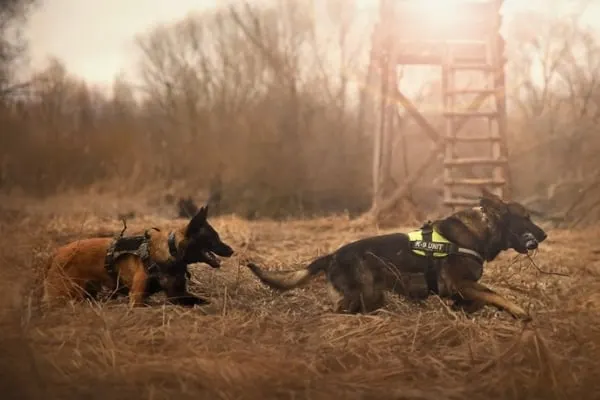
When to Start Training a German Shepherd Dog to Hunt?
The next question you might have is when you should get your GSD puppy started learning the necessary hunting dog skills.
Ideally, you can start training your GSD in puppyhood to become a hunting dog.
You will need to make sure your puppy first learns all the basic obedience commands before you can add in hunting-specific dog training.
Overcoming “gun shyness”
Because GSDs have a long history of working successfully around and near gunfire, there is no reason to believe your German Shepherd puppy won’t adapt quite well.
But you want to make sure you introduce gunfire the right way, as Gundog Magazine explains.
Avoiding over-exercise too early in life
One limitation you might not have thought of is the need to keep your German Shepherd puppy from engaging in any too-vigorous exercise too early in life.
As the German Shepherd Rescue of Orange County explains, German Shepherd dogs mature slowly.
Until these dogs have completed their growth and their bone growth plates have closed and fused, there is a risk that too much exercise will actually cause ligament, muscle, bone, and skeletal damage.
It can take anywhere from seven to 14 or more months before the growing process is done.
Your veterinarian can take X-rays to let you know when it is safe to take your dog out hunting for longer periods of time.
As you now know, it is important to understand the German Shepherd dog’s breed origin and history so you can have realistic expectations about how well GSDs will perform as hunting dogs.
Some German Shepherds grow up to be fabulous hunting dogs that can do it all while others never seem to quite grasp the concept. All you can do is provide the training and see what happens.
























